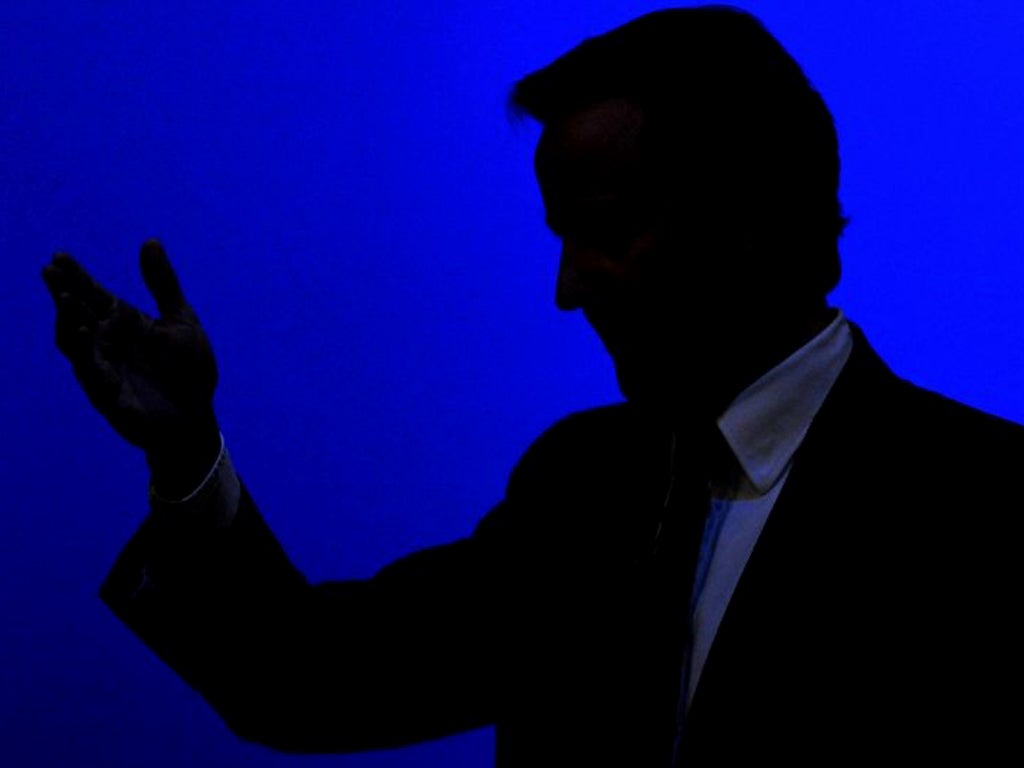Kate Hughes: PM throws confusion into energy cycle
Regulator's plans for tariff limits and clearer bills overshadowed by Cameron's pledge

It should have been a powerful hit back against the big six energy companies on behalf of the nation's beseiged households.
Instead, last week's announcement that the energy regulator was moving to simplify and restrict the huge range of energy tariffs and unfathomable bills faced by consumers desperate to minimise the effects of soaring costs, fell into the hole created by David Cameron's seemingly mistaken pledge to force energy providers to place customers onto their lowest tariff. Confused? You're not alone.
Here's what we know. On Friday, Ofgem announced a series of proposals that would "improve radically the competitiveness of the household energy market". They include plans to ban complex multi-tier tariffs, uncompetitive dead tariffs that are no longer available for new customers and to limit the number of core tariffs each supplier is allowed to offer.
A tariff comparison rate will also do away with the impossible task of trying to work out which is better with today's apples vs pears scenario.
Two years in the making, the regulator's aim is to remove the unwieldy and opaque bills that energy companies have been allowed to hide behind for far too long while giving consumers the opportunity to easily grab the best deal on offer.
"Our plans will put an end to consumers being confused by complex tariffs and will usher in a simpler, clearer, fairer and more competitive energy market for all consumers," says the chief executive of Ofgem, Alistair Buchanan. So it's all good news.
Except that, as we know, an overenthusiastic David Cameron has already come out with "I can announce that we will be legislating so that energy companies have to give the lowest tariff to their customers." Hmm.
Speculation abounds that this was nothing more than a gaffe, particularly as neither Ofgem, the Department of Energy and Climate Change nor the energy suppliers appeared to know anything about it. Indeed, there must have been a collective blink of surprise up and down the country because if this is any more than a slip of the tongue it's a truly terrible idea. Yes, the guarantee of the cheapest deal sounds great, but the logistics would surely be impossible to fulfil and, crucially, the "lowest tariff" wouldn't actually mean anything because suppliers would rapidly make this one-size-fits-all price a high one.
"This has to be a mistake – the unintended consequences would be to kill competition," adds Ann Robinson, the director of consumer policy at uSwitch.com. "Consumers will be left with Hobson's choice – there will be no spur, no choice, no innovation and no reason for consumers to engage any more.
"The only glimmer of hope would be that smaller suppliers will be able to offer cheaper prices than the big six and therefore competition is able to continue in that arena."
Astonishingly it seems that instead of acknowledging a simple mistake, Cameron is going to stick with it and we wait with wide eyes and bated breath to see what on earth happens next.
Unfortunately, none of this will ultimately lead to what consumers want to hear – that their energy bills will be coming down.
Dismissing the PM's statement for the moment, Ofgem's plans are vital for customer empowerment, allowing us all to shop around with confidence and get a deal that best suits our needs and pockets from our chosen supplier – one that we actually understand.
But they don't go very far to help improve transparency around how these prices are calculated in the first place. Nor, crucially, will they help us battle the effects of the most recent hikes this coming winter as any implementation is still a long way off.
The unpalatable truth is that the price of energy will continue to rise as wholesale prices go up, investment is made in infrastructure and we attempt to curb our carbon emissions as a nation.
Clearly, reducing the amount of energy we buy from suppliers – either by reducing our use or looking to alternatives – is the only option we have left to fight the relentless squeeze.
Join our commenting forum
Join thought-provoking conversations, follow other Independent readers and see their replies
Comments